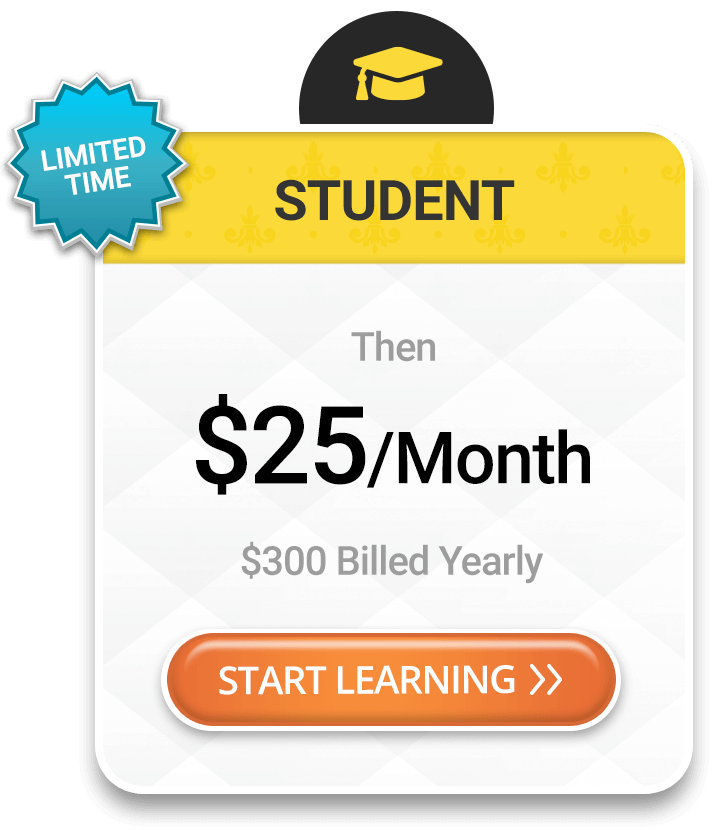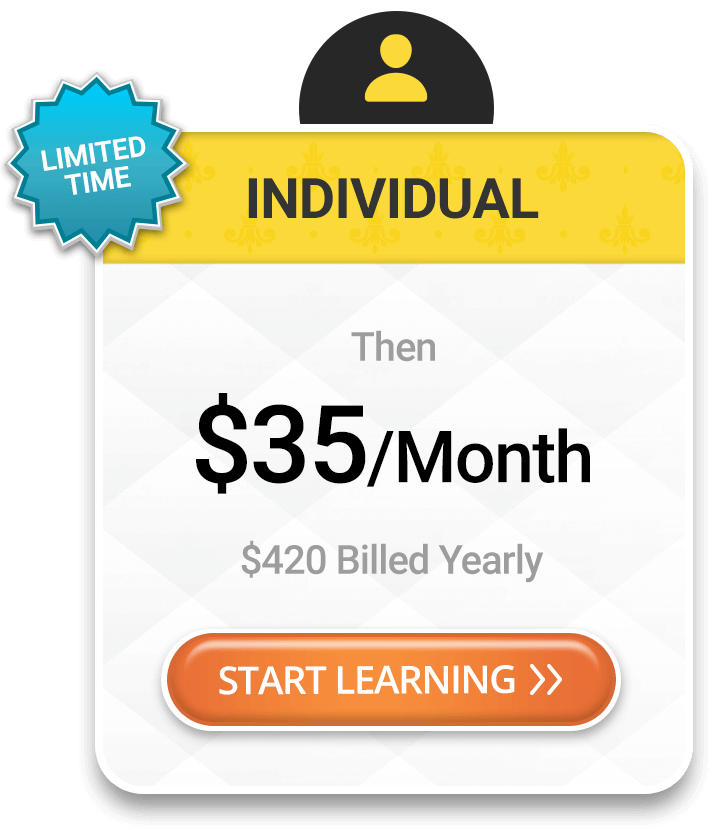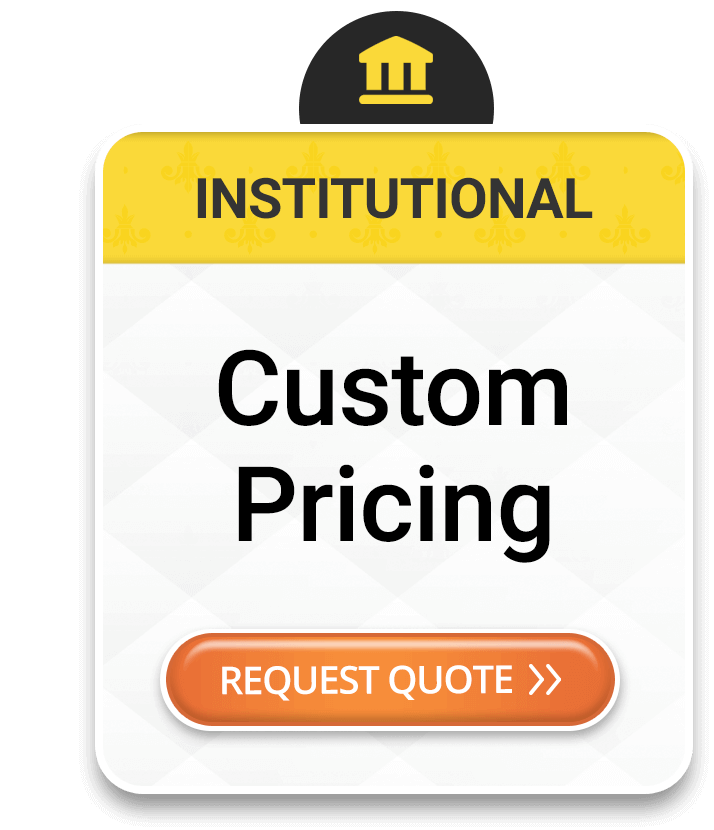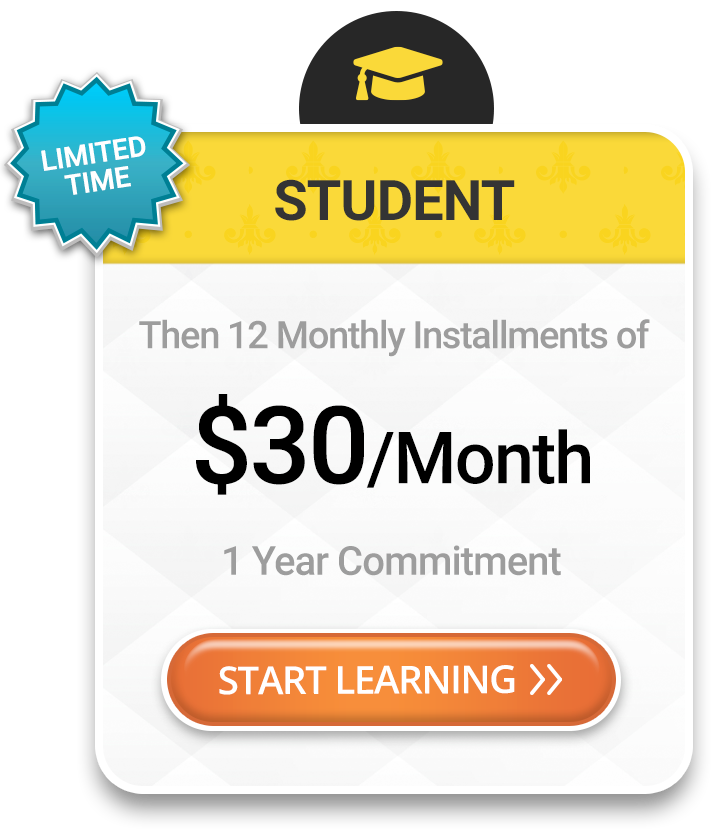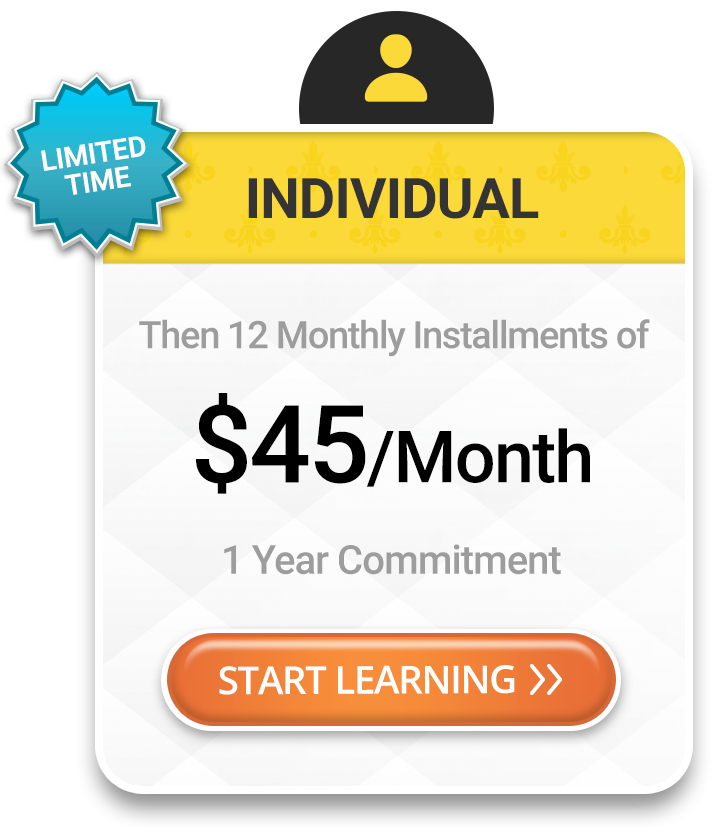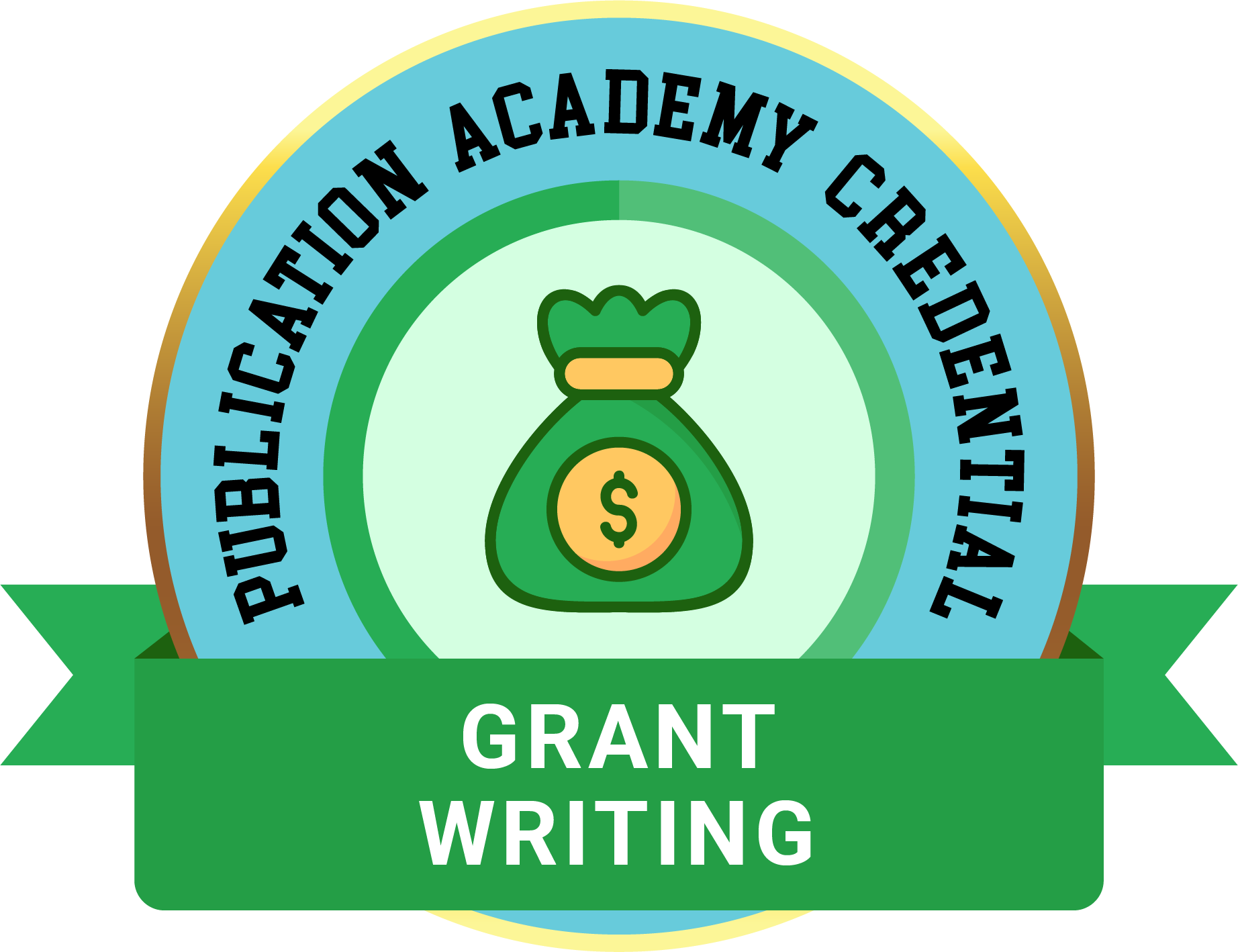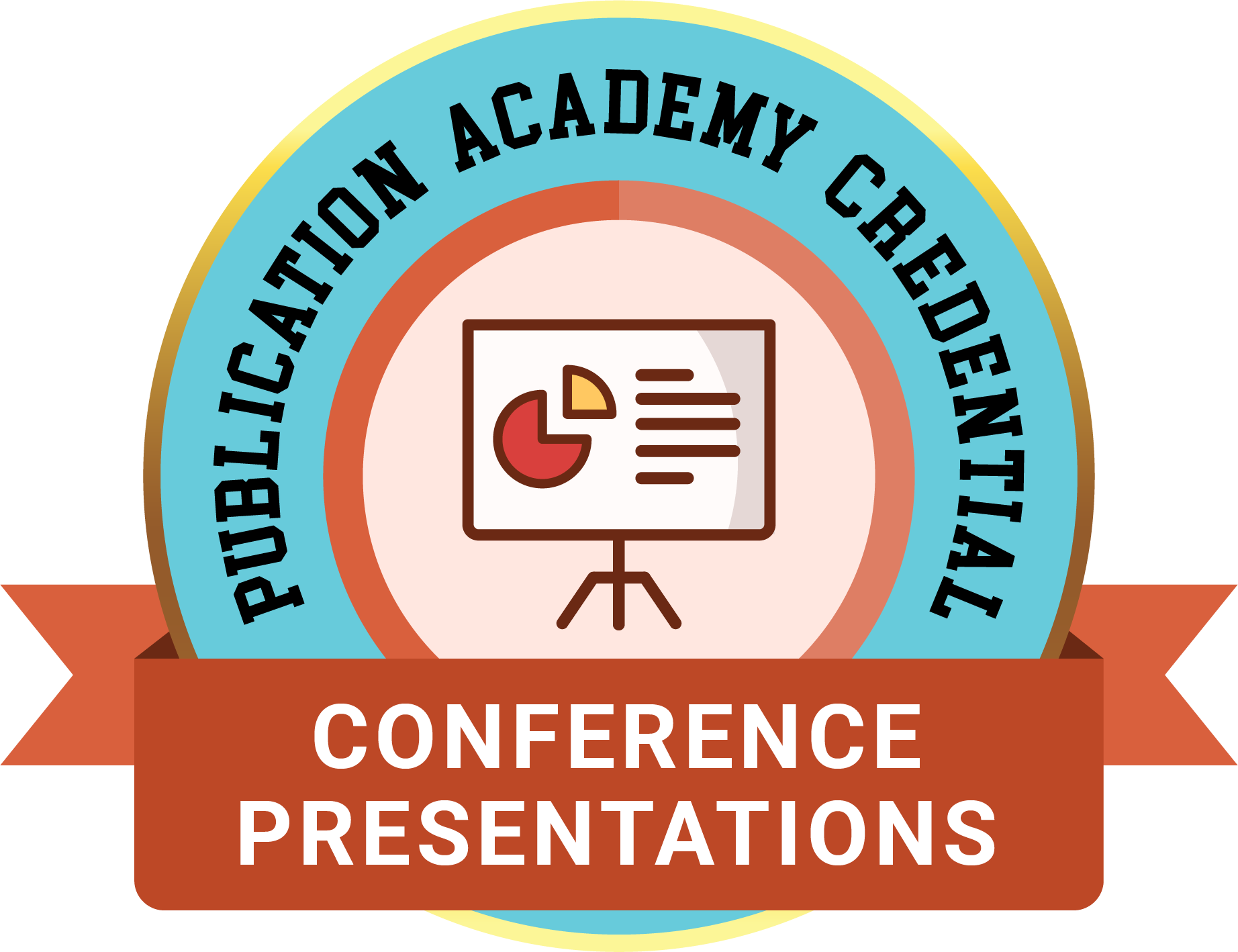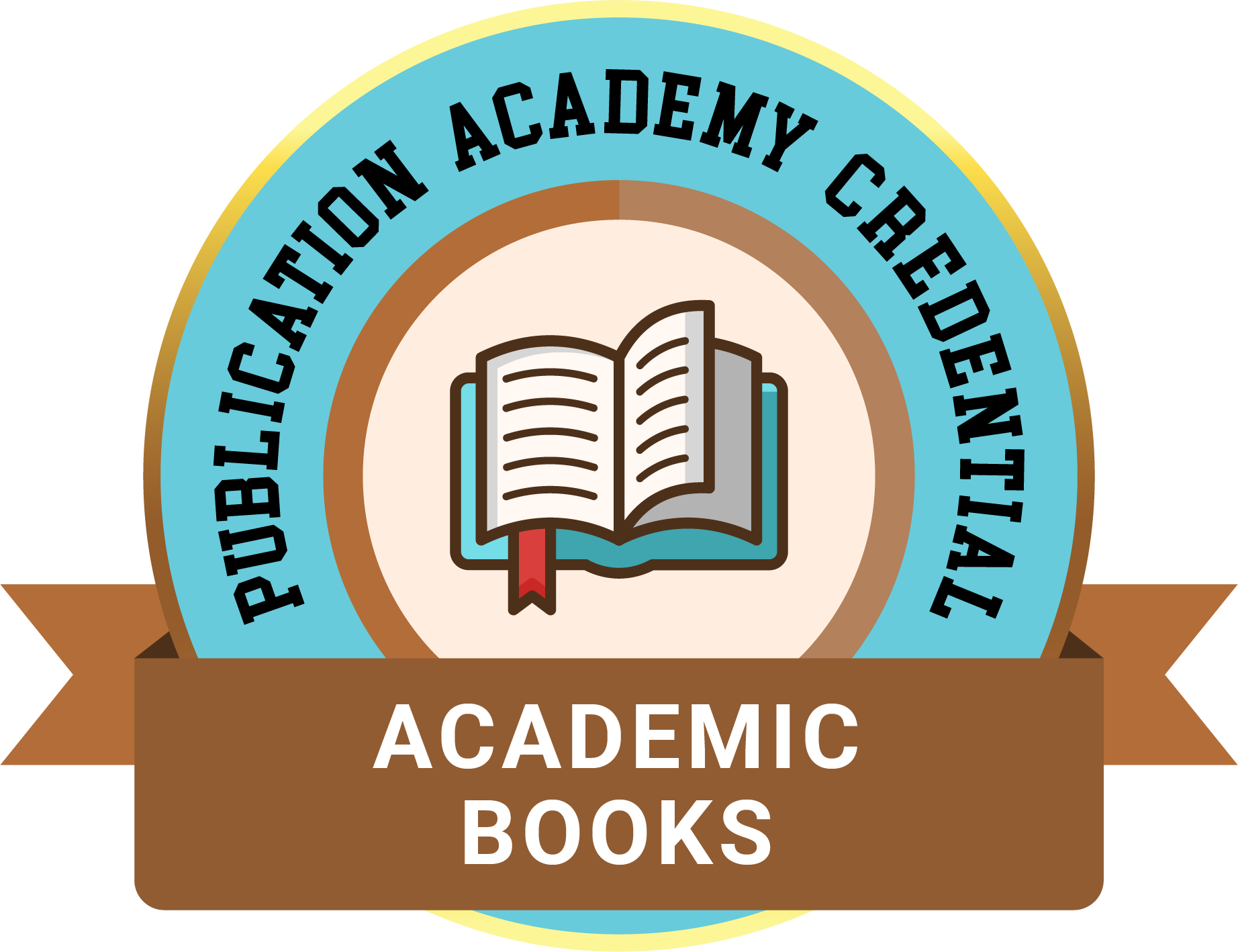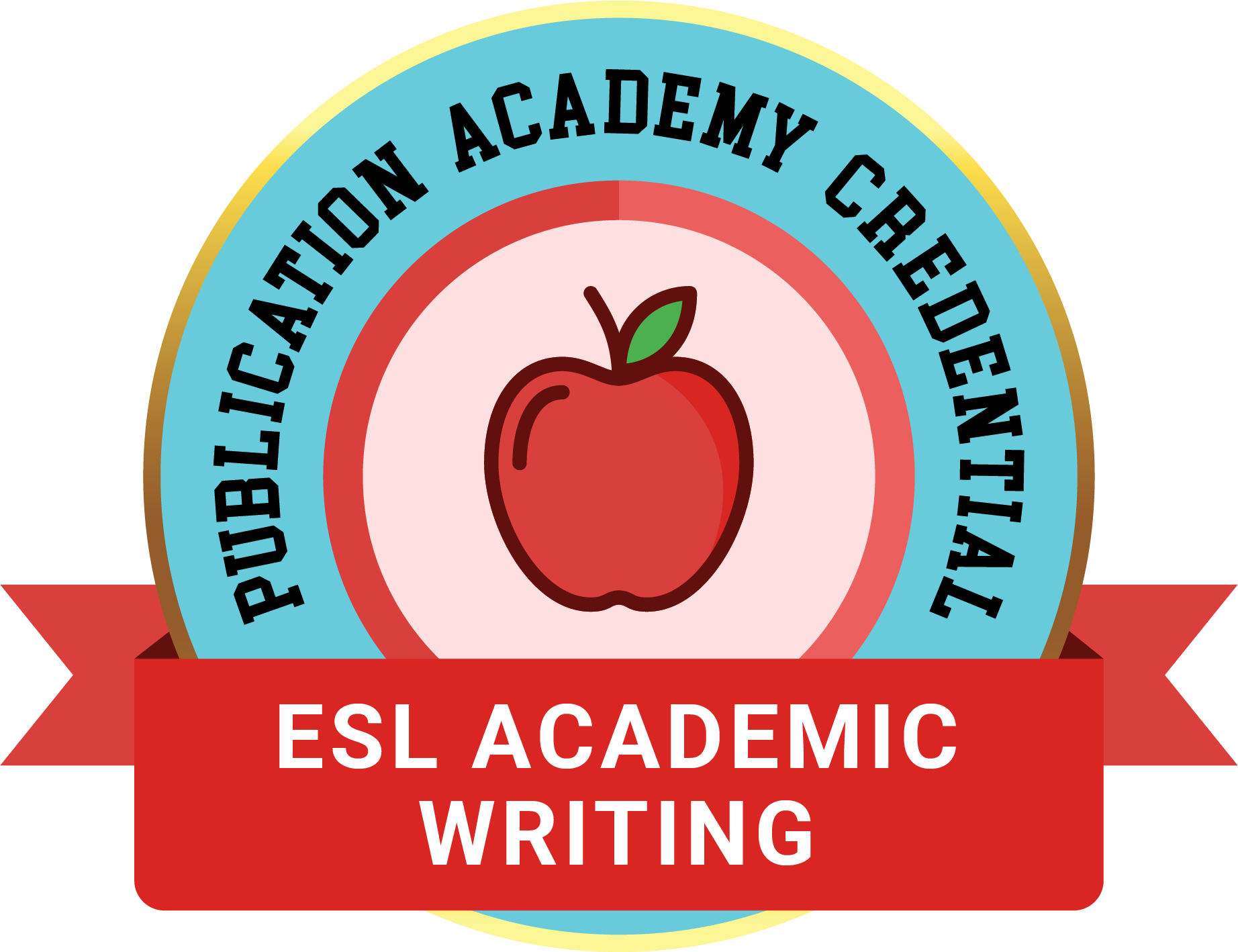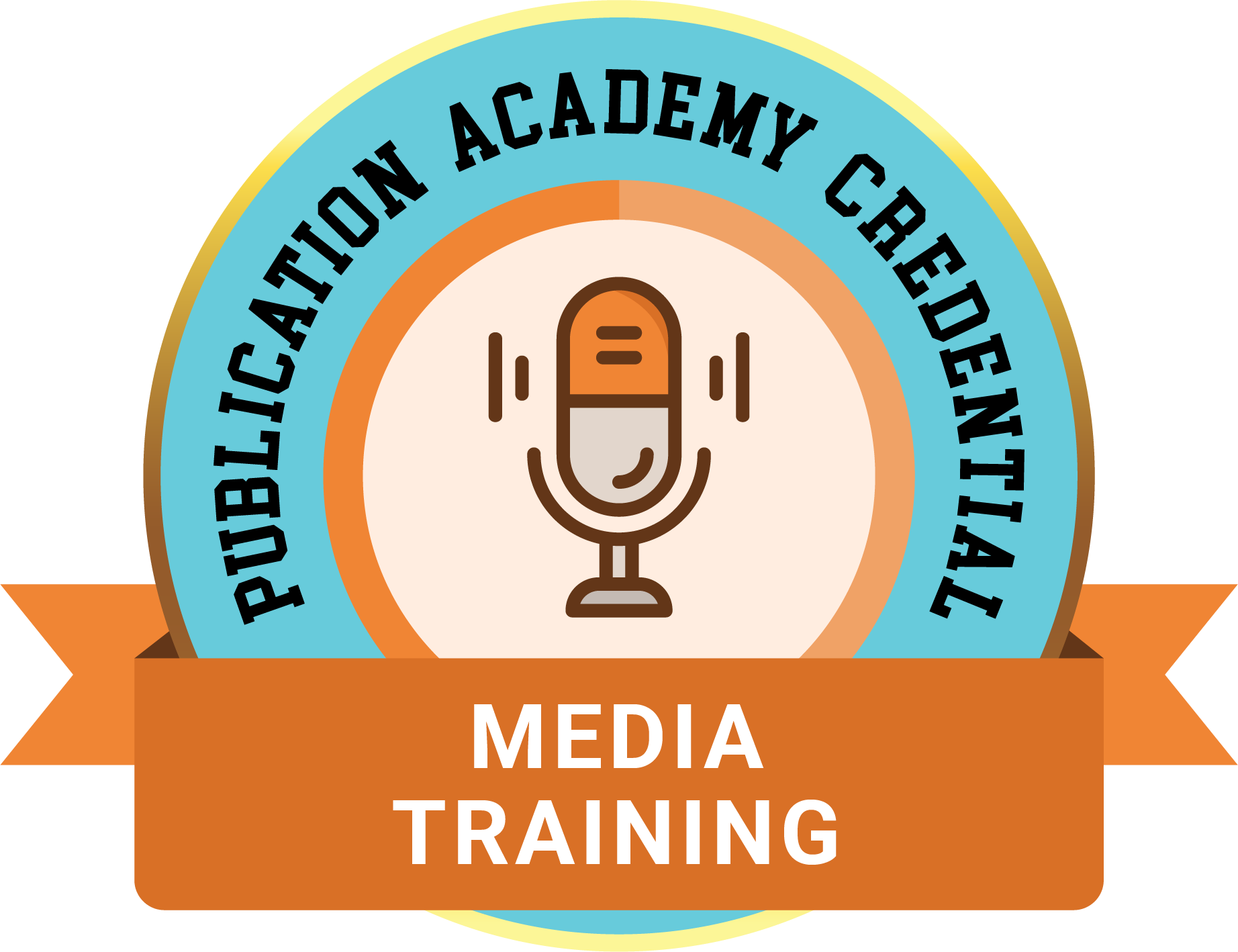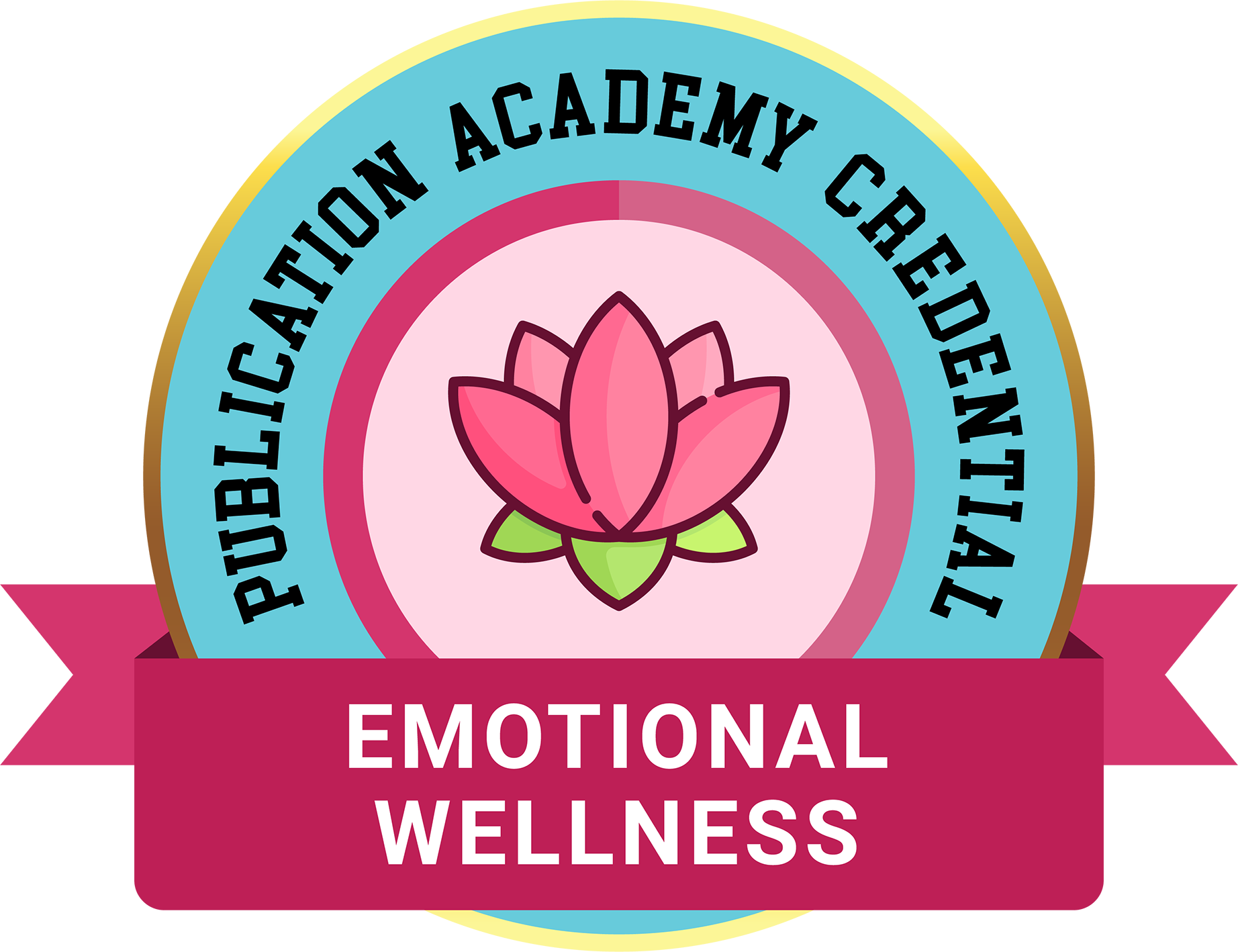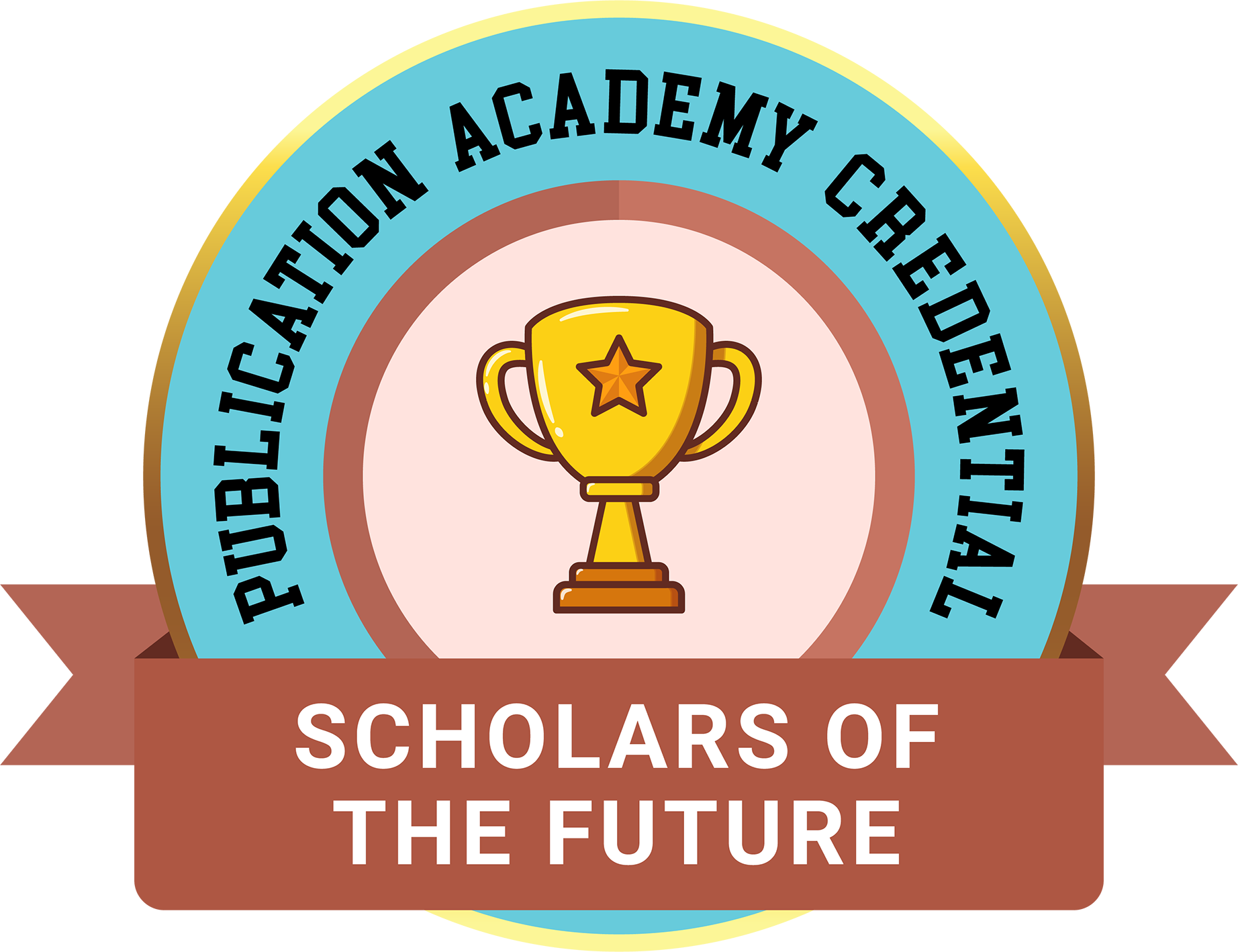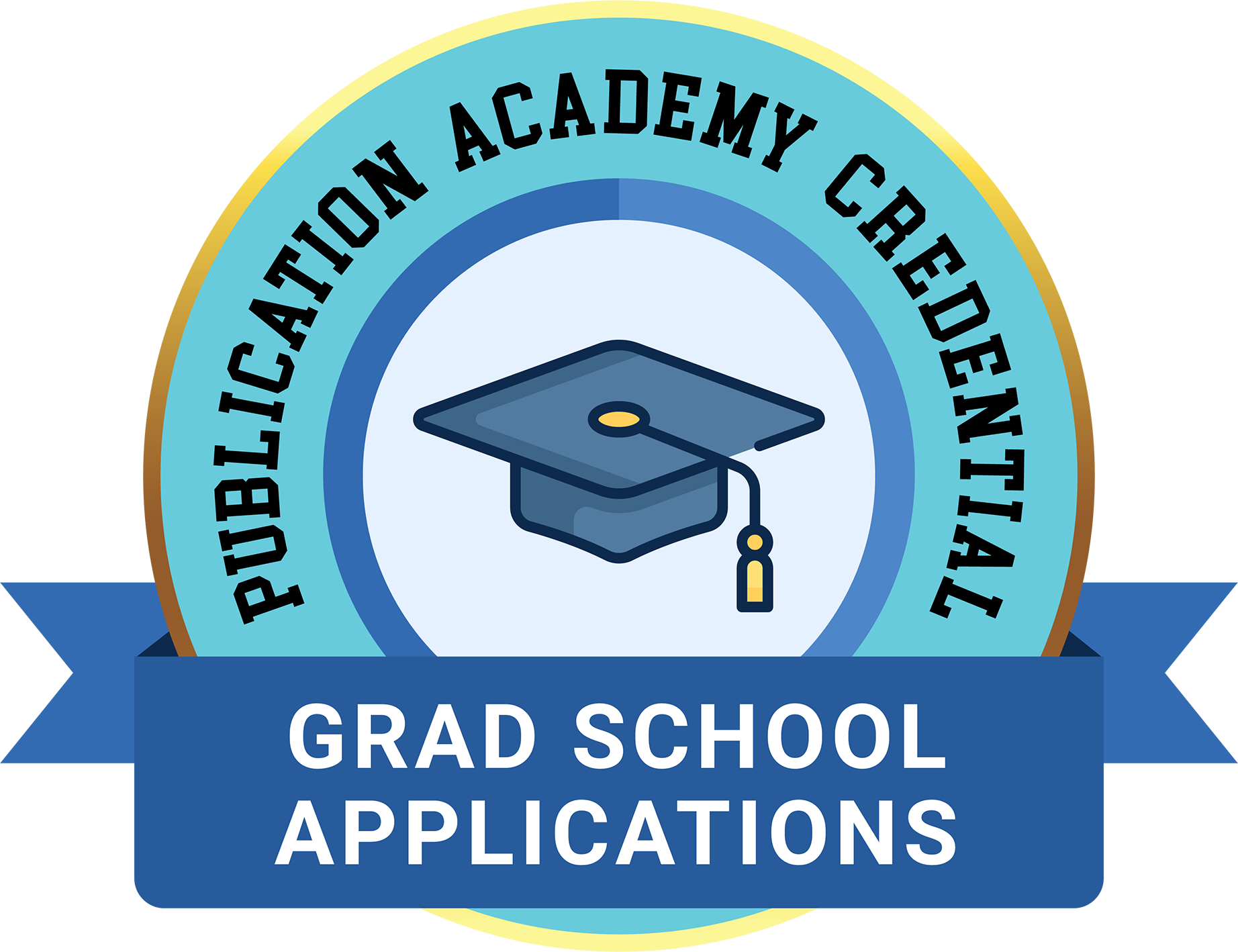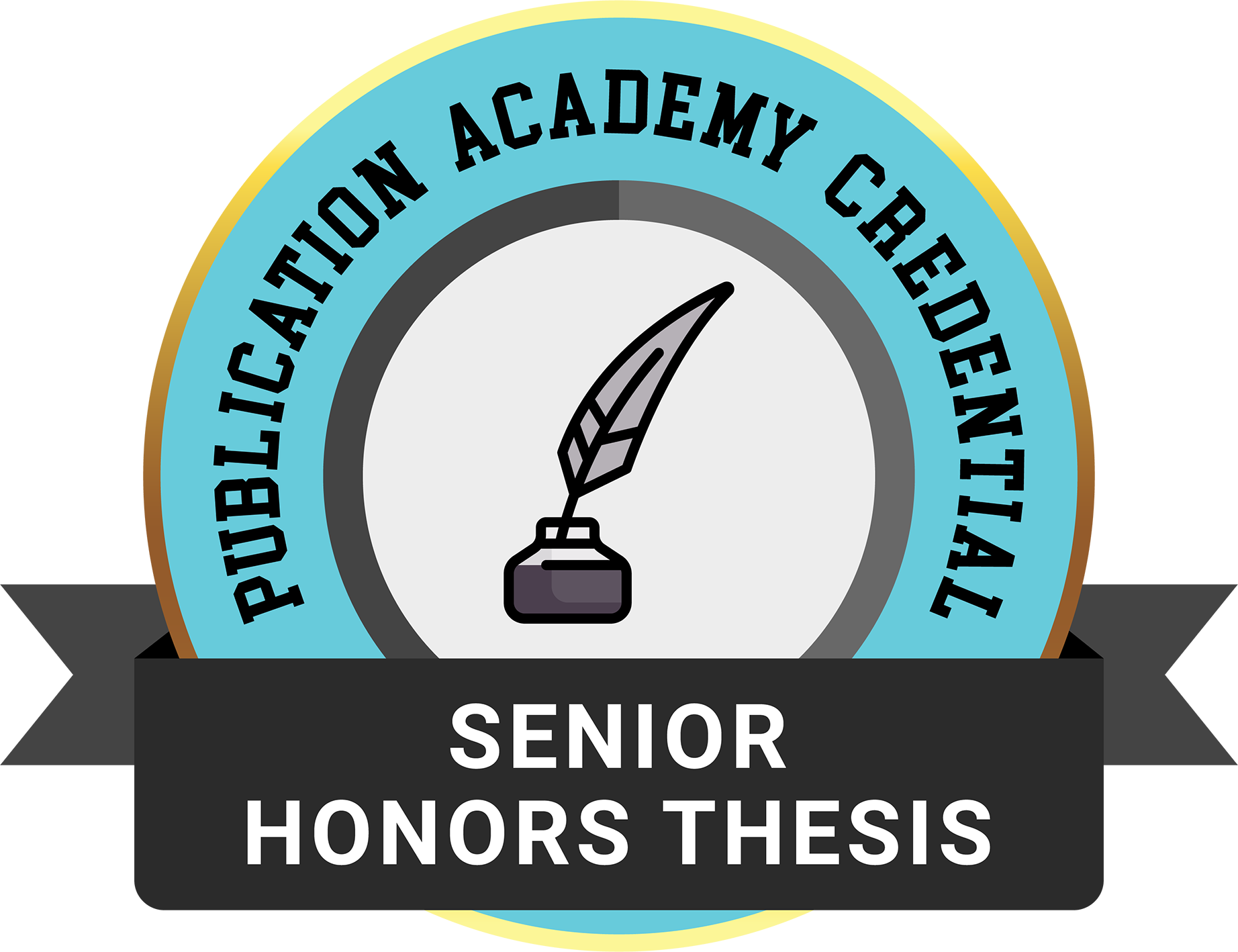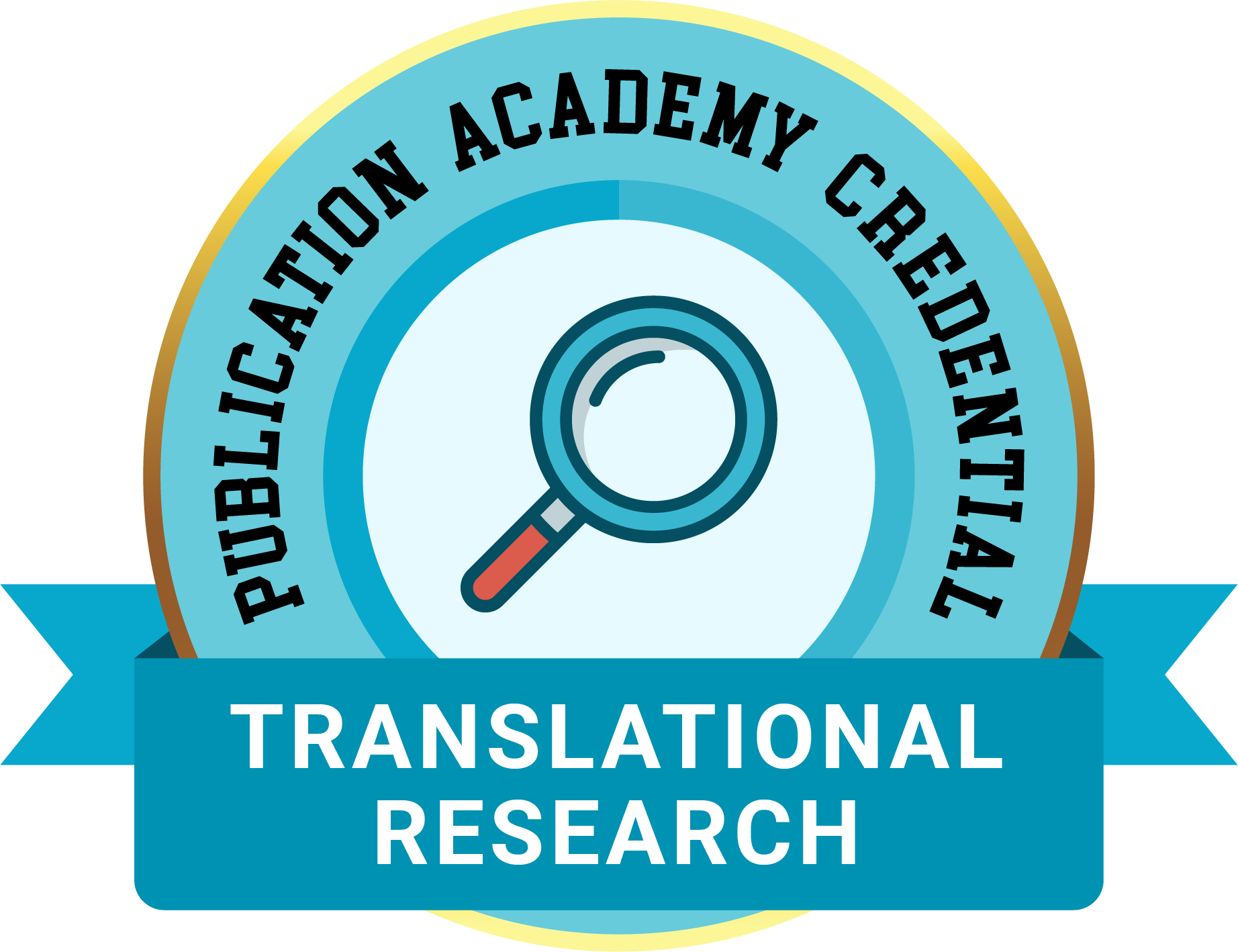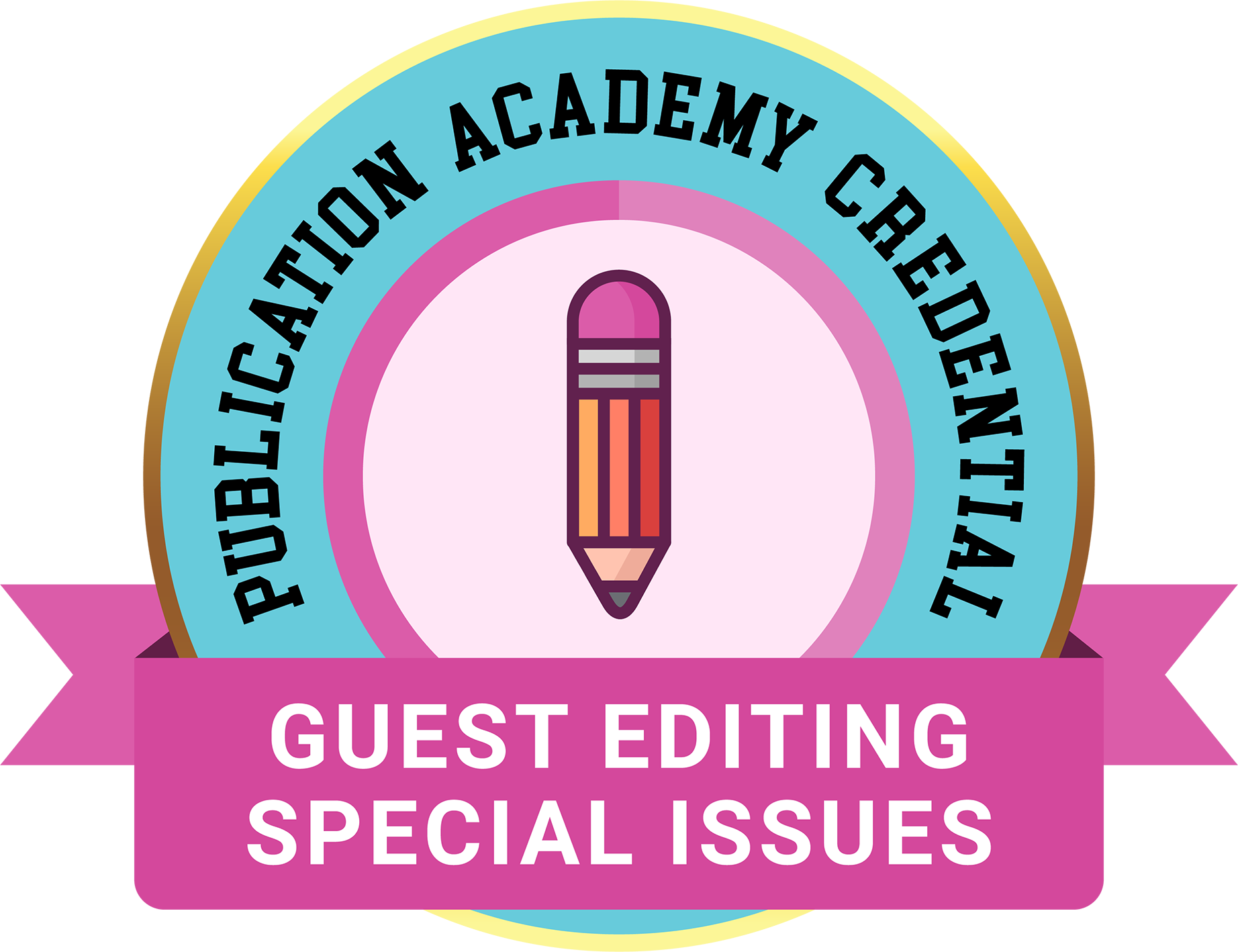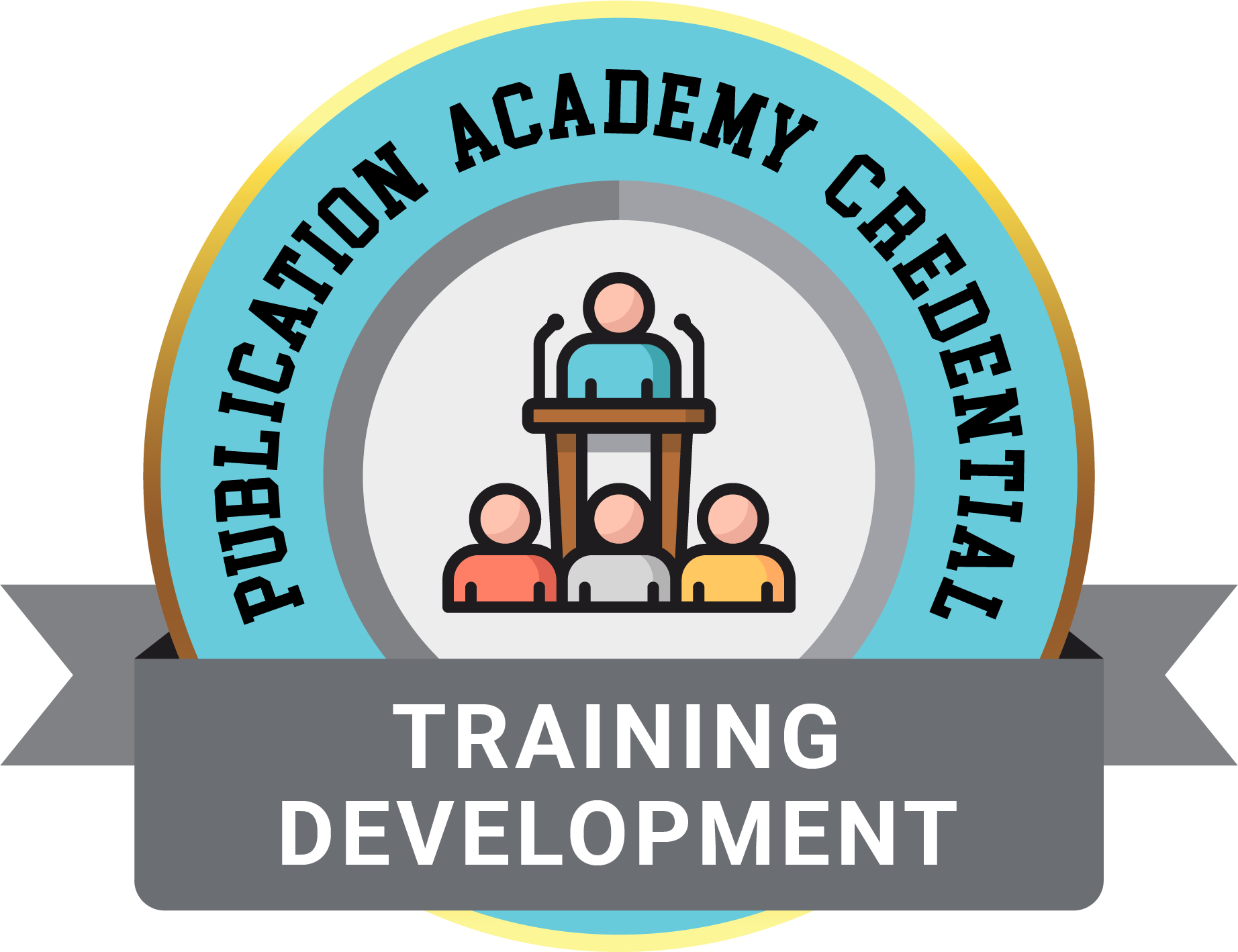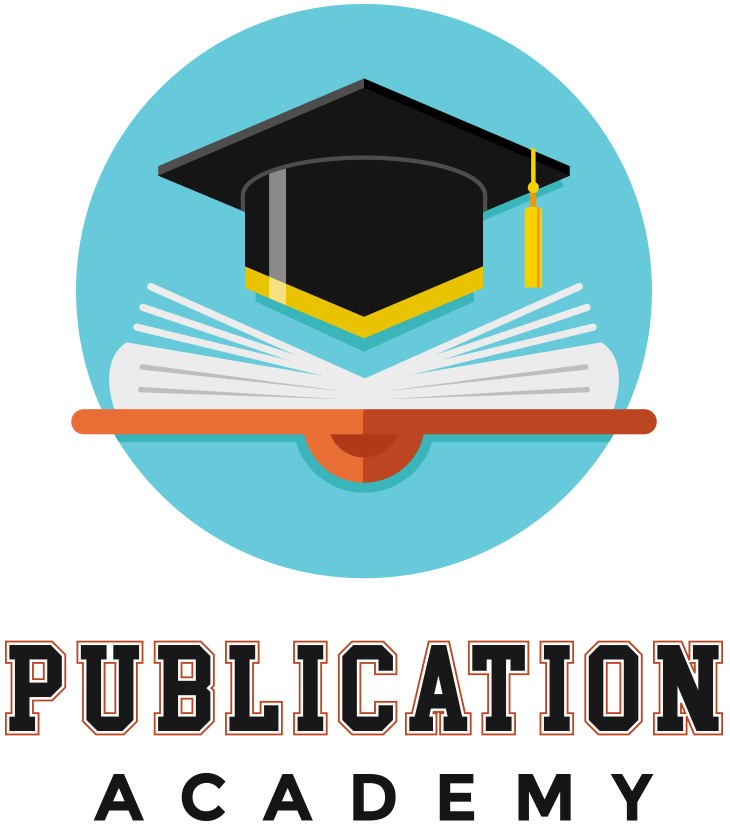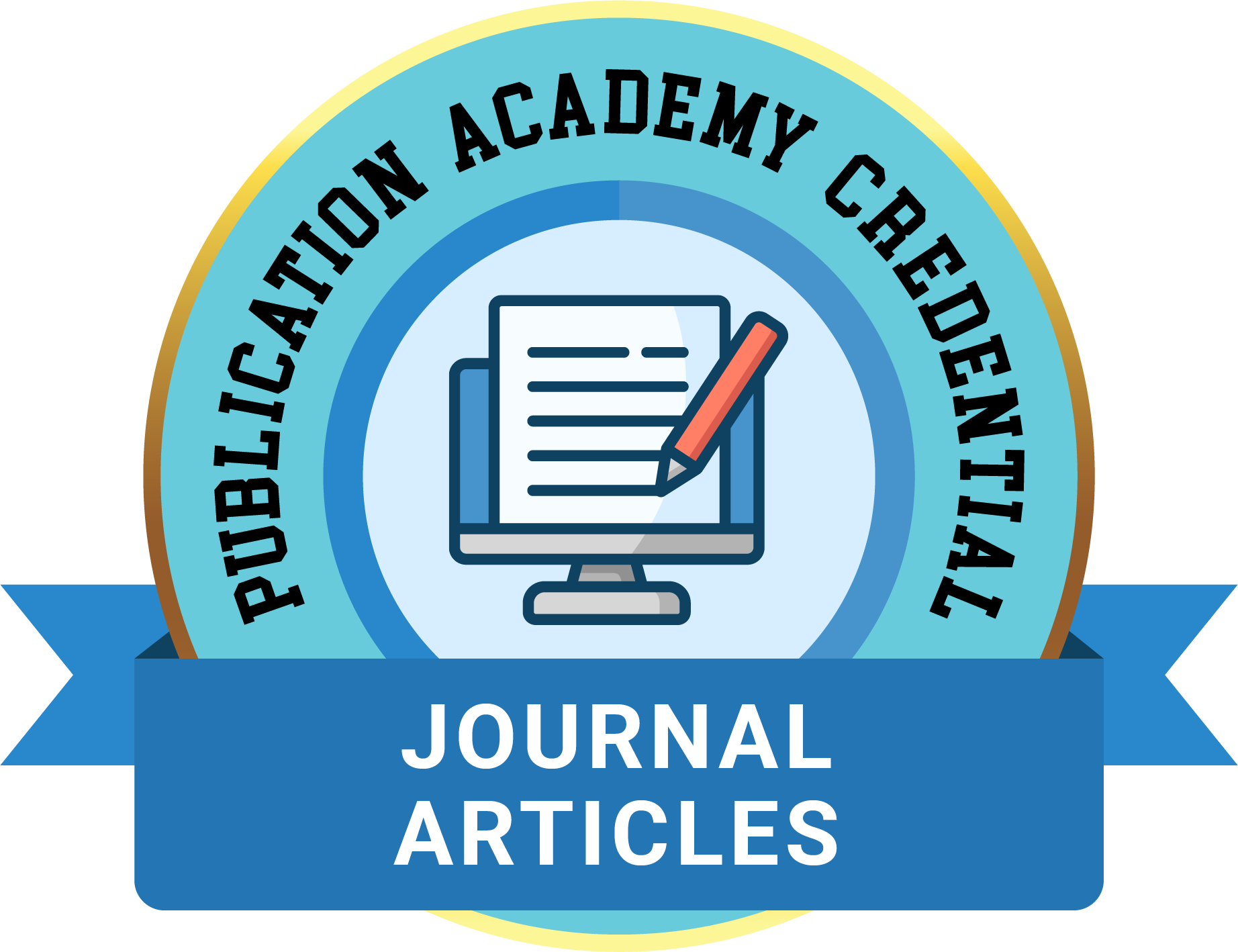
UNLOCK YOUR POTENTIAL
Are you ready to compound your professional impact by unlocking your true potential as a scholar? As a Publication Academy member, you are joining a supportive and inclusive community of highly motivated undergraduates, graduate students, post-doctoral fellows, and faculty members from more than 25 countries, all dedicated to achieving the highest standard of professional excellence in their disciplines. Accelerate your academic success and career advancement through unlimited access to 200+ hours of evidence-based training courses curated by world-renowned professors with hundreds of years of research experience and millions of grant dollars won. With new courses and digital badges added each year, our programs will help you master dozens of critical skillsets ranging from grantwriting to publishing in high impact journals. And to further fast-track your path to success, you will be able to take advantage of our Mentorship Masterminds each month with cohorts of fellow students, faculty, and industry professionals.
EXCLUSIVE MEMBERSHIP BENEFITS
200+ Hours of
On Demand
Video Courses
“Members Only”
Mentorship Masterminds
Each Month
Stackable Digital
Badges & Exclusive
Certifications
DIGITAL BADGE PROGRAMS

STACKABLE MICROCREDENTIALS
Complete Multiple Badge Programs to Unlock Exclusive Certifications
TESTIMONIALS

“I thoroughly enjoyed the insider insights from the dozens of trainers into the publication process. Without experience, I wasn’t sure of where to begin to get a manuscript published but now my confidence has skyrocketed. My membership will definitely make for a smoother submission process in the future.”

“I love everything about my membership. It efficiently and effectively taught me what I need to know to evaluate and cite articles and successfully publish my manuscripts. I wholeheartedly believe this program saves countless hours of researching tips and learning them over time through trial-and-error.”

“Graduate school gave me crucial tools in becoming an effective healthcare provider, but Publication Academy was what really taught me how to turn that experience into becoming a thought leader in my field. The instructors’ presentations were thorough and instrumental in helping me win my first grant.”

“Becoming a member of Publication Academy has been one of the best decisions of my professional career. It gave me access to not just continuing professional development opportunities but also a supportive community of fellow post-tenure faculty for mentorship and peer support. HIGHLY RECOMMENDED!”
INCLUDED COURSES
FAQ
I am interested but I don’t have enough money to afford a Publication Academy membership. Can you help me?
Yes – It will be our pleasure to assist you in making the ask to obtain internal funding to cover your Publication Academy membership. We have developed a highly effective e-mail template and a list of common objections and how to address them step-by-step. It will be our pleasure to provide you with these resources, if you e-mail us at support@publicationacademy.org.
I am VERY busy and worry that I won’t have enough time to take advantage of the resources I would receive via a Publication Academy membership?
At Publication Academy, we recognize that you are exceptionally busy and are committed to helping you successfully pursue a healthy work/life balance, maximizing your professional productivity while also prioritizing emotional wellness. We do this by ensuring that all of our self-paced courses are available for you to watch on YOUR schedule, on any device, at any time. Each course is divided into brief chapters and can even be viewed on 1.5x or 2x speed, allowing you to learn as much as possible in as little time as possible. Also, keep in mind that our best-in-class courses on topics such as effective time management as well as goal setting and prioritizationwill significantly increase your productivity, thus saving you additional time.
Will Publication Academy membership be beneficial for someone in my specific discipline?
Yes – Your Publication Academy membership will provide you with access to On Demand video courses and live webinars that are relevant across disciplines (social sciences, medical sciences, humanities, engineering, law, and business) as well as an increasing library of courses that are dedicated to specific fields. Current Publication Academy members are researchers from dozens of specialties, including astrophysics, biology, computer science, economics, education, electrical engineering, English literature, human resources, international affairs, library science, marketing, medieval history, music, neuroscience, performing arts, philosophy, political science, primatology, psychology, social work, and theology (among others!).
Have an idea for a new course in your discipline or interested in becoming our newest trainer? Contact us at support@publicationacademy.org.
How soon after becoming a Publication Academy member can I begin to access the On Demand video courses and attend the monthly live webinars?
Immediately!
Am I able to upload and display on social media platforms the digital badges from the microcredentials and certifications I earn via my Publication Academy membership?
Yes – We encourage all Publication Academy members to proudly display the digital badges from the microcredentials and certifications they earn on social media, their professional and personal websites, as well as on their CV or resume. For step-by-step guidance on how to upload your microcredentials and certifications to LinkedIn, please e-mail us at support@publicationacademy.org.
Don’t all researchers already know how to publish?
No – Studies suggest that most researchers (including university professors) have no formal training in writing for publication and have developed their skills mainly through an inefficient process of trial and error. In terms of post-graduate training, only 15% of graduate students and post-doctoral fellows report having been required to take a course or workshop on academic writing or publishing skills before applying for faculty positions, and over 60% of both groups report feeling unprepared for publishing (Glew et al., 2014).
Would a Publication Academy membership still be beneficial for researchers who already have extensive publishing experience?
Yes – The trainings you will have access to via your Publication Academy membership provide numerous benefits to researchers who already have extensive publishing experience. Our proprietary templates significantly increase the speed at which experienced professionals can prepare high-quality manuscripts for publication, automating key documents throughout the publishing process such as pre-submission inquiries, cover letters, peer-review responses, and much more! As an additional benefit, experienced professionals can “outsource” training in academic writing and publishing for their staff, mentees, or students to Publication Academy, resulting in significant time-savings which can be spent on producing even more cutting-edge publications.
Should I consider becoming a Publication Academy member while on sabbatical?
Of course! In fact, becoming a Publication Academy member while on sabbatical to engage in continuing professional development for career advancement is one of the best uses of your time.
Can Publication Academy train me to publish, if I am not an academic?
Yes – In a 2020 pilot, 70% of professionals in non-academic settings successfully published either a peer-reviewed journal article or an edited book chapter within one year of being a Publication Academy member. Although some professionals may have “Imposter Syndrome” when getting started with our training resources, either due to a lack of experience in publishing or not being affiliated with a university, research has found that academic writing and publishing programs result in similar publication rate increases in both academics as well as non-academics (Frantz & Amosun, 2011). In addition, a recent study found there to be no impact of an author’s affiliation on the likelihood that their manuscripts will be accepted or rejected (Paiva et al., 2017).
Can Publication Academy train me to publish in English, if I am a non-native English speaker?
Yes – Publication Academy has trained researchers in 17 non-native English-speaking countries to increase their success rate in publishing in English. In fact, Publication Academy offers the most comprehensive online training available to help non-native English speakers to master academic writing (https://www.publicationacademy.org/course/english/).
Can I become a Publication Academy member and attend the monthly live webinars even if I am not located in North America?
Yes – Publication Academy members are from more than 25 countries outside of North America, and we would be delighted to welcome you as our newest member!
Would a Publication Academy instructor be willing to participate in our annual conference, either as a guest speaker or as a trainer for a workshop?
Yes – Publication Academy would be happy to send to your conference one of its world-renowned publishing experts from prominent institutions including Harvard, Oxford, Cambridge, UPenn, NASA, the Smithsonian, PBS, and Discovery Channel.
Does Publication Academy have an established method to help us identify who would benefit most from membership?
Yes – Publication Academy can provide you with a customized digital survey for potential enrollees to rate their interest in receiving premiere training in a variety of research- and writing-related skillsets, as well as their perceived confidence in applying those skillsets. The findings of the digital survey are then shared with your decision-makers, with recommendations on whether an institutional membership, in-person workshop, or custom program would be the ideal fit for producing positive outcomes.
Can you provide me with an invoice for the cost of a membership, so I can get it internally funded?
Yes – Publication Academy is happy to provide you with an invoice, if you e-mail us at support@publicationacademy.org. Invoices are due within 30 days of receipt and are considered final.
Can Publication Academy split an invoice among different departments who wish to enroll new members?
Yes – Publication Academy is happy to accommodate requests to split invoices among different departments which would like to enroll members in this manner.
We would benefit from a Publication Academy institutional membership, but our operating budget does not have a specific provision to fund such an initiative. Can Publication Academy guide us in securing external funding such that we can enroll?
Yes – If you are committed to pursuing external funding to secure a Publication Academy institutional membership, our team will provide your Office of Sponsored Research personnel (or equivalent) with a proprietary Grant Template Packet containing all information needed on Publication Academy for standard grant applications so as to expedite the process of applying for external funding opportunities. As partners, we will be available to support you every step of the way!
We already enroll people in a class on publishing research at a local university (or on-site), so what would be the advantage to providing them with a Publication Academy program instead?
On-campus and on-site classes on academic writing for publication are wonderful resources! Publication Academy’s self-paced video training programs combined with its exclusive monthly live webinars with subject matter experts provide over 600% more professional training content than the next closest competitor. Our evidence-based programs are proven to increase participant rates of publication between 50% to over 500% over a two-year period, according to a recent study with a $2B private foundation. Furthermore, Publication Academy’s instructional model embraces a unique template-based pedagogy that automates critical publishing tasks to help participants save time, increase productivity, and maximize the likelihood of publication. Publication Academy is more economical, more convenient, more collaborative, and has been proven to produce better results than on-campus or on-site classes.
Does Publication Academy provide additional discounts for multi-year membership contracts?
Yes – Publication Academy provides additional discounts for multi-year institutional membership contracts. We would be happy to discuss your institution or organization’s needs and to explore potential partnerships of mutual benefit, if you e-mail us at support@publicationacademy.org.
Why would a Publication Academy institutional membership be of interest to foundations which exclusively give out grants?
A foundation’s investment in its staff and grantees via a Publication Academy institutional membership is one of the most effective ways to maximize its “return on investment” (ROI). The ROI for foundations is often how much public good has been done, based on the funding they allocate for specific projects. If a team has received funding from a foundation on the basis of a grant proposal, they will have already specified a project objective, a product or service designed to meet that objective, and an evaluation procedure to measure whether that objective has been met using the product or service. Upon completion of the project, the team will produce a report which presents their findings on whether the product or service met the objective in accordance with the evaluation methods specified in the proposal. Teams often do not realize that this is research, and Publication Academy will help staff and grantees transform those reports into publishable manuscripts which can be rapidly disseminated!
By publishing the findings of funded projects, foundations can multiply their current impact, improve their brand image and name recognition, establish innovative evidence-based best practices, and more effectively achieve their mission via the increased credibility and large-scale dissemination brought about by publishing in respected academic outlets such as peer-reviewed journals as well as in leading blogs, newsletters, policy briefs, and more!
Foundations stand to gain competitive differentiation by supplying high-quality training to grantees in how to improve their digital footprint and reputation for research excellence, creating a new generation of thought leaders tied to their organization. Building a reputation for supporting the professional growth of funding recipients will uniquely position foundations to attract more qualified applicants to compete for their grants.
Why would a Publication Academy institutional membership be particularly beneficial for Institutions of Higher Education?
Among the most effective ways an Institution of Higher Education can advance in national and international rankings is to support their faculty and students in developing their capacity to publish. However, research suggests that most academics have no formal training in writing for publication, with the lowest percentage being undergraduate students. And only 15% of graduate students and post-doctoral fellows report having been required to take a course or workshop on academic writing or publishing skills, with over 60% of both groups reporting that they feel unprepared for publishing. That said, survey and interview research has established that graduate students and post-doctoral fellows are motivated to enhance their writing skills via participation in programs like Publication Academy, especially because being published before applying for tenure track positions increases visibility and improves the likelihood of international faculty collaborations. In fact, participation in an academic writing and publishing program has been found to not only increase manuscript quality and rates of publication but also to promote career advancement, with a previous study having found that half of program participants go onto higher-level academic positions within two years of program completion.
The pursuit of scholarly productivity has been found to evoke stress and frustration not only in students but also in a majority of faculty members, whose career advancement is closely linked to their publication portfolios. A seminal survey by the UCLA Higher Education Research Institute of more than 40,000 US faculty members revealed that 26% of professors spent 0 hours per week writing and that 27% had never published a peer-reviewed journal article. In the two years before the survey, 43% of faculty members had not published a single paper. These low rates of publication output have been confirmed in additional surveys conducted throughout the past 20 years.
It is important for Institutions of Higher Education to encourage publication, as there is a strong association between research output and university reputation, impacting enrollment rates, faculty and student retention, and external funding opportunities. Many countries use ratings assigned by a panel of assessors – based on an Institute of Higher Education’s number of new publications (scored on originality, significance, and rigor), whether they were journal articles or other forms of publication, the impact factor of journals in which publications appeared, and overall citation counts – to inform the allocation of future government funding. Examples of countries with such national assessments of research excellence include Australia, Denmark, England, Hong Kong, New Zealand, and South Africa among others. Economic analyses in such countries have shown that the cost of academic writing and publishing skills programs such as Publication Academy are marginal, given that the incremental government funding received as a result of the increased publication rate can amount to over $3 million USD per institution.
Does Publication Academy license its content and curricula to be offered as a credit course to undergraduate or graduate students at Institutions of Higher Education?
Yes – Publication Academy has experience licensing its content and curricula at universities throughout the United States which have created credit courses for both undergraduate as well as graduate students. We would be happy to discuss your institution or organization’s needs and to explore potential partnerships of mutual benefit, if you complete the Contact Us section at the bottom of this webpage.

